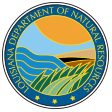Welcome to Crop Plants Genetics Lab
Drought and salinity are major climate-related risks for sustainable rice production. Development of abiotic stress tolerant rice cultivars is needed to enhance food security under future climatic uncertainties. The major bottleneck to accomplish this goal is the narrow genetic base of US rice germplasm, which needs to be expanded through introgression of novel abiotic stress tolerance genes from stress tolerant donors. However, precise introgression of novel genes from the tolerant donors, which are low yielding indica landraces with many undesirable traits, will be needed. Therefore, we are employing different mapping populations such as recombinant inbred lines (RIL) and introgression lines from several cross combinations to discover and validate quantitative trait loci (QTL) for various morphological and physiological attributes conferring abiotic stress tolerance. Our ultimate goal is to integrate the abiotic stress related QTL information with the genotypically and phenotypically characterized prebreeding lines to develop improved pyramided lines to minimize the impact of climate change.
Aflatoxin contamination is a recurring problem in all southeastern corn growing states due to the prevalence of high temperatures and drought conditions during the grain-filling period. Aflatoxins pose serious health hazard to both animals and humans. Use of host plant resistance to develop corn hybrids is the most practical solution to minimize aflatoxin contamination. Our goal in this project is to elucidate the molecular basis of aflatoxin resistance mechanisms which will accelerate development of superior inbred lines using marker-assisted selection.
Our coastal plants research activities include development and application of molecular markers for DNA fingerprinting and genetic diversity studies, molecular biology of salinity tolerance in smooth cordgrass, and micropropagation in sea oats. The overall goal of the coastal plants genetics research project is to generate knowledge and technology to accelerate development of improved plant materials in native plant species for coastal restoration.

